
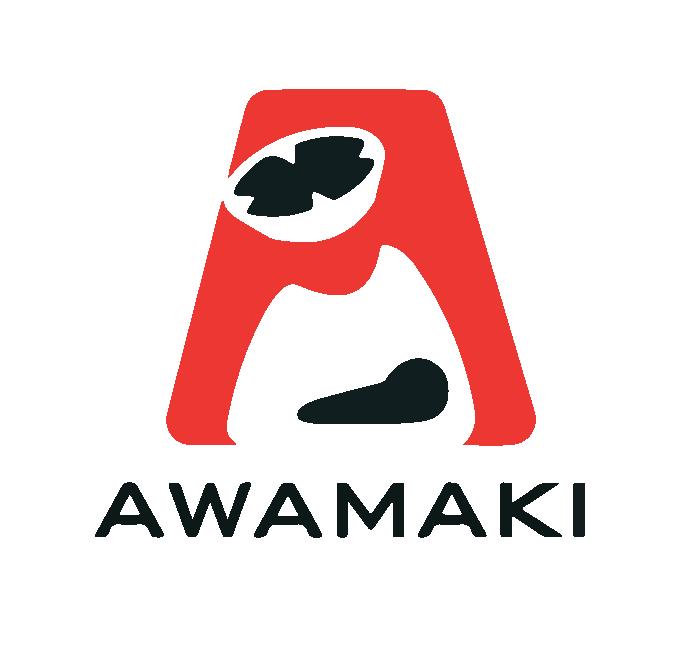
ANNUAL REPORT 2019




2 Who We Are 3 Message from Executive Director 4 Story of the Year 5 Cooperative Spotlight 7 Dashboard 9 Financial Statements 10 Staff & Board of Directors 12 How to Get Involved 13 TABLE OF CONTENTS Awamaki @awamakiperu @awamaki Awamaki
WHO WE ARE
Awamaki is a community-driven social enterprise working in deep collaboration with Quechua artisans. Together we create grassroots programs to support and grow women-led cooperatives through heritage textiles, market access, and sustainable tourism.

Building the financial independence of women is at the core of what we do. We recognize the importance of cultivating opportunities that honor artisans, their families, and their communities, which is why we co-create sustainable tourism opportunities built on respect and reciprocity.
From our training programs to the programs we create, our shared values guide us in every aspect of how we operate.
3
MESSAGE FROM OUR EXECUTIVE DIRECTOR
Dear Friends and Supporters,
This year we have continued collaborating with our artisan partners and supporting them in their journeys toward financial independence.
The highlight of our year is the continued growth and recognition of our sustainable tourism program. We received the World Travel & Tourism Council’s Tourism for Tomorrow Award in the Social Impact category, the To Do award for sustainable tourism at ITB Berlin, and a commendation for our work from the World Leisure Organization.
Our global recognition went beyond our tourism program. This spring, our artisan partners from Kelkanka had their work featured in “Weavers of the Clouds,” an exhibit about Peruvian textile artistry at the Fashion and Textile Museum in London. The museum’s feature of their work, alongside well-known artists from all over Peru, was a great and well-deserved honor.
Recognition of our artisans and their work has helped us to expand and partner with new cooperatives. For the first time, we have expanded outside of our backyard in Ollantaytambo, adding two artisan groups in Ocongate, which is a town about 2 hours from Cusco. In this fundamentally reciprocal partnership, we're bringing new economic opportunities to these communities while they're contributing new weaving styles and designs to our line.
With your much appreciated support, we continued offering business administration and leadership workshops to our artisan partners. This year, we focused on public speaking, communication, and informed consent with three of our artisan groups. As businesswomen and as community leaders, they want to be able to speak confidently and advocate for themselves, and our workshops give them the tools to do so.
We couldn’t do any of this without your support. Your generosity has had a profound effect on what we can offer our artisan partners, giving them an incredible opportunity to learn new skills and work their way to financial independence. We see them doing this every day and the change they are creating is inspiring. Thank you for making an enormous difference in the lives of our Quechua partners and their families.
Warmly,
Kennedy Leavens Executive Director

4
HIGHLIGHT OF THE YEAR
(Sustainable) Tourism for Tomorrow
On April 4th, our employees and artisan partners in Peru were busy creating beautiful woven products, leading and participating in business administration workshops, and preparing for the high season of tourism to begin. On the other side of the world, Kennedy Leavens, Executive Director of Awamaki, found herself walking across the stage at the 19th World Tourism and Travel Council (WTTC) Global Summit in Seville, Spain, to accept the Tourism for Tomorrow Award in the Social Impact category. While Kennedy was (deservedly) the representative to receive this award, the award belongs to all of us: our artisan partners for leading our tours and cultivating enriching cultural exchange, our employees for collaborating with and supporting these cooperatives to make our tours a reality, and to our donors, without which none of this would be possible.
The Tourism for Tomorrow Awards, now in their 15th year, showcase the world’s most inspiring sustainable travel organizations. A total of 183 applications were submitted for the 2019 awards, and Awamaki was selected as one of the five awardees based on a 3-phase judging approach featuring 25 qualified judges drawn from academia, business, and NGOs. The awards themselves are based on three principles: environmentally friendly operations, support for the protection of cultural and natural heritage, and direct benefits to the social and economic well-being of local people in global travel destinations. In particular, the Social Impact award recognizes an organization working to improve the people and places where it operates.

Sustainable tourism is becoming more mainstream with every passing year. Fiona Jeffery, Chair of the WTTC, noted at the awards that “67% of travelers would consider a travel company’s sustainability agenda when booking a trip.” However, most people still don’t have the concept of sustainable tourism as part of their travel vocabulary; to aid with that, we would like to share a bit about Awamaki’s history and relationship with sustainable tourism.
Sustainable tourism is defined as the practice of tourism in a way that respects and strengthens the destination or host community. Sustainable tourism invests in the families that live in a host community, offers economic opportunity to those who are often marginalized by or excluded from tourism, and strengthens appreciation for the cultural heritage and environment of the destination community. Rather than undermining cultural practices, sustainable tourism respectfully elevates and values local traditions. For example, in the communities where Awamaki works, sustainable tourism offers women the opportunity to earn an income by sharing their deep knowledge of weaving and fiber arts, instead of working in a hotel or a job in a nearby city that is removed from their community.
Years ago, tourism to the indigenous villages where we work was disorganized and chaotic. Without a tourist reception center, guides brought tourists to the village to wander the paths, even peeking into people’s homes to take pictures. Visits were not planned in advance, so when tourists arrived, women dropped everything they were doing–cooking, weaving, parenting–to run to meet the tourists in the hopes they would sell a weaving, but if they didn’t, there was no compensation for the time they took from their day. The economic benefit of tourism was uneven and unreliable. Visitors disrupted and eroded key parts of village life. Meanwhile, women had few options to earn money in the village, as paying jobs were located in towns several hours away.
At Awamaki, we have worked with artisan partners to design a tourism program that is beneficial to indigenous communities and meaningful for tourists.

Artisans know in advance when tourists will arrive, and they have created a rotation system to ensure that everyone has a chance to benefit from the visits. We have supported our artisan partners in creating comfortable spaces to host tourists, and worked with them to set guidelines for respectful photography. Through our program, artisans are compensated for their time hosting tourists whether or not the tourists buy weavings. Overall, visitors enjoy a much calmer and more meaningful experience, with an opportunity to truly connect with their host community. Artisans and their families are able to earn an income while valuing their heritage and keeping their communities intact.
As we at Awamaki move forward into the new year, one of our goals is to bring our sustainable tourism program to a new cooperative: Awac Phuna. A large cooperative of over 30 women, we’ve been collaborating with them over the last three years to develop their technical skills to the point that we were able to begin using their textiles in our commercial products this year. But now, the women are ready to take on the challenge that is tourism. “I would like more weaving from tourism,” says Maria Salome, an elder and leader in the cooperative. “I have been delicate with my health and would like to make a more steady income in case I need treatment, and to not bother my family with that.”
To take the leap into our tourism program, Awac Phuna needs financial support to build a weaving center to serve as a tourism space. Tomasa, a gifted weaver and mother of two, shares the cooperative’s dream for how they can earn more. “We don’t have a place to receive tourists and I would like to have one for us,” she says.
As we head into the new year, we are hoping to use and gather more donations from our wonderful supporters to fund tourism training, new market connections, and the construction of a weaving center for this ambitious cooperative. By doing so, Awac Phuna will begin enriching the experience of tourists while also benefiting from the ways that our sustainable tourism program invests in and brings new economic opportunities to high andean communities.
An Artisan Field Trip STORY OF THE YEAR
It was a Monday, like any other Monday here in Ollanta. Everyone was busy at work, coming and going from the market and the shops. But it wasn’t just any day for the 26 artisans of our partner cooperative Puskariy Tika, and many of their youngest children, who loaded up on two minibuses and set off for an Andean female entrepreneurship field trip. They were headed to the village of Marcapata, located a little more than a four hour drive southeast of Ollantaytambo, to meet up with the artisan cooperative of Tres Alpaquitas located in Marcapata to learn how they transitioned from working with the support of a non-profit organization to working independently on their own, taking and filling their own orders.
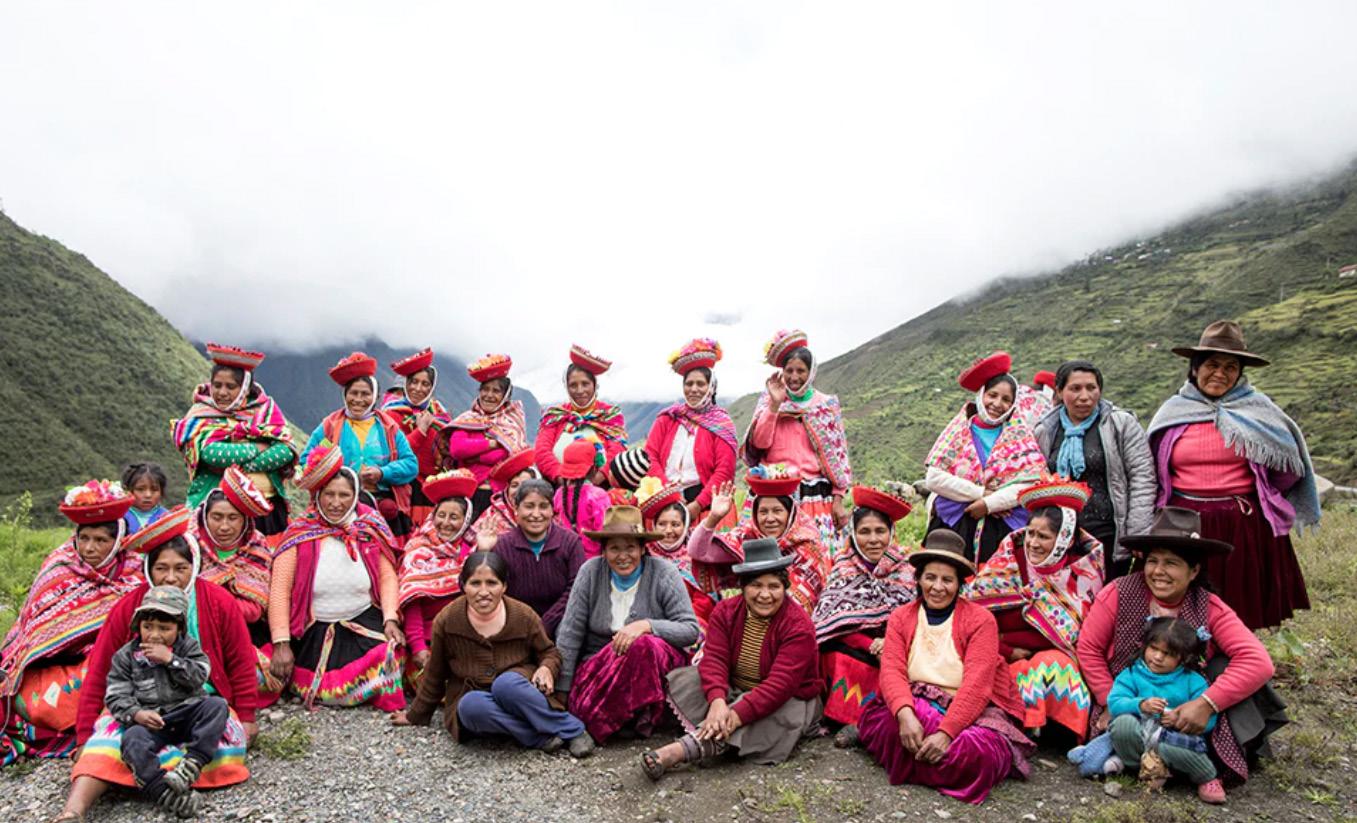
Mercedes, head of our Women’s Cooperative Program, found the connection and knew this business of artisans would be a great example to the Awamaki artisans of what their cooperative could become and achieve if they keep working hard and working as a team. “They were a very consolidated group. They are similar to our groups in terms of educational backgrounds, so they are an example of how to continue in terms of their business,” she explained. Mercedes hoped that the visit would show an example to the artisans that they “can undertake work on their own; and that they should take advantage of the support that Awamaki provides their new business in training.”
After a long first day of driving south, roadside stops, and beautiful views, we arrived at the town of Marcapata after dark. In the town center, a small plaza opened up to several family hostels where our group divided up to stay the night. Everyone woke up to a foggy morning right on the border of the Andes mountains and the rainforest. After breakfast we boarded the buses and headed off to the center of Tres Alpaquitas to meet with their artisans.
At the center we filled every chair available in their main room and finally had the chance to sit down and chat. Martha, president of the Puskariy Tika cooperative, introduced herself and her cooperative to the women at the center. After a round of introductions, the women of Tres Alpaquitas began a presentation, complete with videos highlighting their methods of production, such as cleaning and their yarn. It was clear this cooperative knew what they were doing in the industry of handicrafts. We were all impressed to view their brochures and catalogs and learn of their success with exporting their knitwear abroad. The women of Tres Alpaquitas were able to stress throughout their presentation the importance of setting goals for your business and also the need to invest in it, one of the more difficult aspects of starting a business for our artisans. “They are united with the same goal, so it is possible to achieve their own aspirations,” Mercedes later reflected.
7
At the end of their presentation, our artisans had the opportunity to ask questions and visit the small shop located directly in the Tres Alpaquitas center, a space they own and manage. The women from Huilloc inquired about everything from investment plans, goal setting strategies, methods for checking in on their progress, marketing and sales approaches, to specific knitting, spinning, shearing, and dyeing techniques that the artisans in Marcapata use for their products. Afterwards we were invited to enjoy a delicious meal together as a group. The parallels between the two groups were encouraging to both our team and the artisans for the future of the Awamaki cooperatives. Our sustainable model of development with each of our partner cooperatives provides many resources and opportunities for them to learn and grow as small businesses, but they are just the beginning phases. Graduated cooperatives like Rumira and Songuillay have proven that this goal can become a reality through the trainings Awamaki provides. Our goals remain to graduate each of our cooperatives and see them gain clients of their own to continue their work and be able to support their families and communities. While our artisans attend workshops and trainings that teach them the necessary skills to do so, it can remain difficult for the artisans to conceptualize succeeding in each of the required tasks on their own. This field trip experience showed
them a clear example of what their future might look like, especially if they continue to work as a team, set goals for themselves, and invest in their business the same way they invest in their families and communities. It was incredibly powerful to watch these women converse back and forth in their native language of Quechua about how with hard work this dream of independent business success is possible.
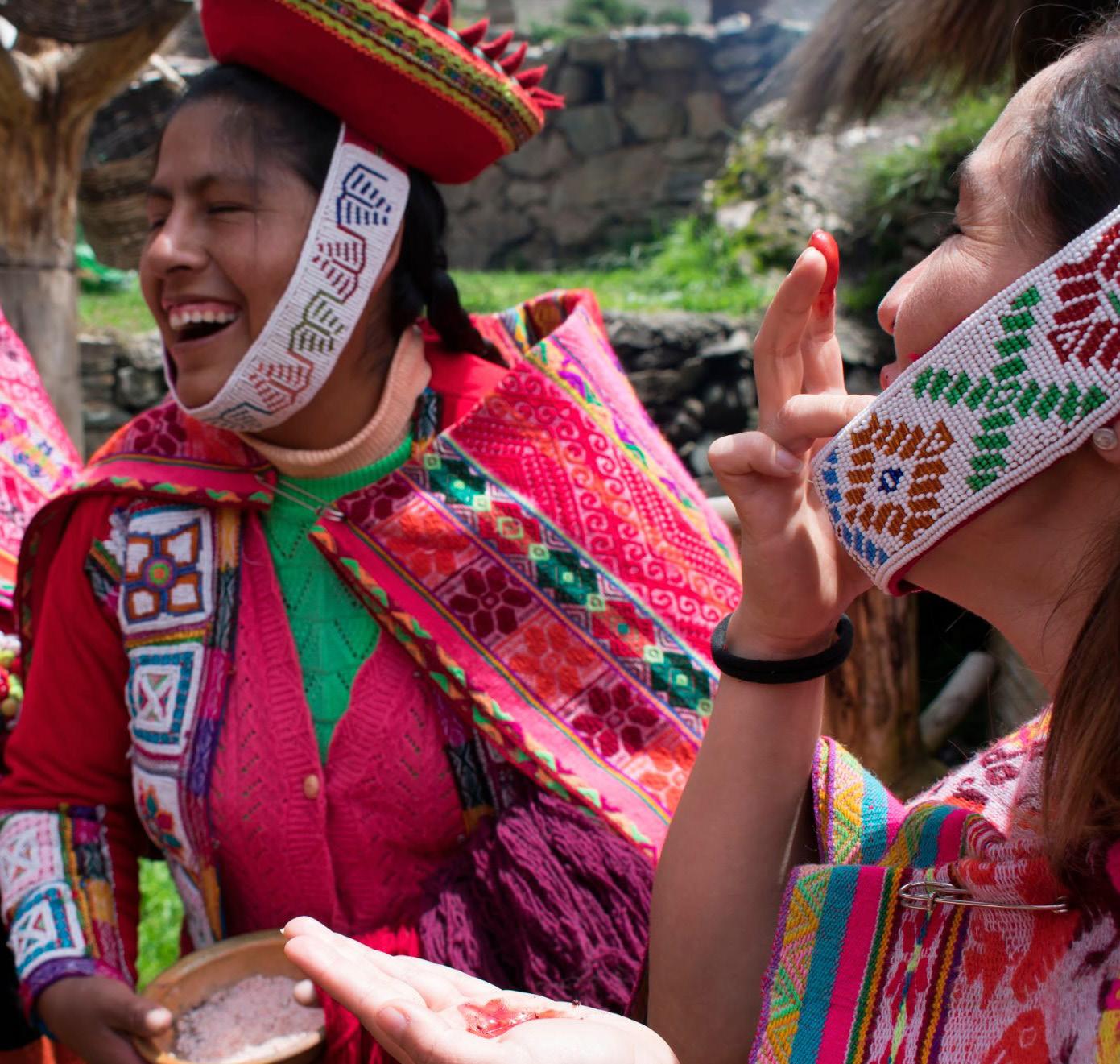
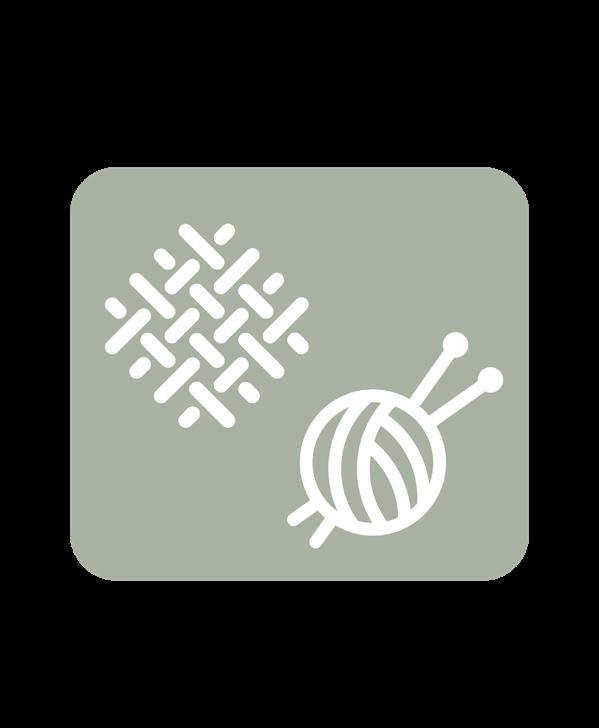
9 DATA DASHBOARD: Programs, Cooperatives, & Communities 7 Independent Clients 11 Workshops 158 Tours 46 Retail Partners 187 Women 11 Coops 37 Average Age 3 Average number of kids 8,411 Products Sold 46 Wholesale Products Sold $ 41,810 Total Tourism Income $ 292 Average Annual Income per Artisan 596 Family members supported
FINANCIAL STATEMENTS
STATEMENT OF PROFIT AND LOSS

Revenues Fair Trade product sales Grants and Donations Tourism income Other Total COS Profit Expenditures Operations Facilities People Program Other Inventory reconciliation Total Net Income Asociación Civil Awamaki $ 144,300 $ 90,800 $ 204,200 $ 200 $ 439,500 $ 129,800 $ 309,700 $ 12,300 $ 45,000 $ 145,800 $ 72,000 $ 400 $ 0 $ 275,500 $ 34,200 2019 2018 $ 156,300 $ 64,000 $ 290,400 $ 5,800 $ 516,500 $ 187,600 $ 323,200 $ 20,700 $ 55,600 $ 147,500 $ 82,400 $ 1,500 $ -900 $ 306,800 $ 16,400
STATEMENT OF FINANCIAL POSITION
Note on financial statements: The Asociacion Civil Awamaki is a Peruvian non-profit civil association responsible for carrying out women’s empowerment programs in Peru.
These statements do not include the financial activity of Awamaki U.S., our partner organization that is a 501(c)(3) in the United States.

11
Assets Cash Accounts Receivable Inventory Total Assets Total Liability & Equity Asociación Civil Awamaki Liabilities and Equity Liability Accounts Payable Total Liability Equity Unrestricted Net Income Net Income Total Equity
$ 35,500 $ -5,000 $ 61,400 $ 91,900 $ 0 $ 0 $ 57,700 $ 34,200 2019 $ 33,700 $ -5,000 $ 29,100 $ 57,800 $ -2,300 $ -2,300 $ 43,900 2018 $ 91,900 $ 91,900 $ 60,000 $ 57,800 $ 16,100
STAFF & BOARD OF DIRECTORS
AWAMAKI STAFF
Kennedy Leavens, Executive Director
Yovana Candela, Director of Operations
Mercedes Durand, Head of Women's Artisan Cooperatives
Mollie Mae Henager, International Partnerships Manager
Mandish Kalsi, Sales Coordinator
Martha Zuniga, Production Coordinator
Melissa Tola, Sustainable Tourism Coordinator
Veronica Levy, Marketing and Communications Coordinator
Annemarie Toccket, Special Projects Consultant
Alejandra Carrillo-Muñoz, Head Designer
AWAMAKI BOARD OF DIRECTORS
Annemarie Toccket
Ladd Leavens
Kramer Gillin
Tom Weeks
Jessica Younker
Kennedy Leavens
Kristen Clark, CPA
Quincy Anderson
12
HOW TO GET INVOLVED
SUPPORT OUR WORK
Awamaki is a 501(c)(3) nonprofit organization. Donations can be made online at www. awamaki.org/pages/donate.
SHOP OR VISIT SUSTAINABLY
Support our artisan partners by shopping for our ethically handcrafted accessories grounded in traditional Andean textile techniques at www.awamaki.org/collections/all.
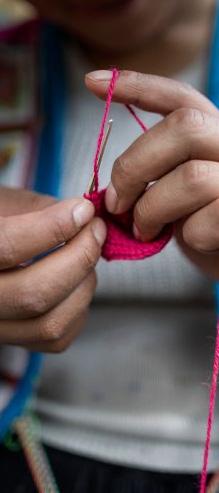
Carry our fair trade handcrafted products by becoming a retail partner. Learn more at www.awamaki.org/pages/wholesale.
Travel with us by booking a sustainable tour at www.awamaki.org/pages/sustainable-tourism.
VOLUNTEER WITH US
Learn more about our volunteer program at www.awamaki.org/pages/volunteer or contact us at info@awamaki.org to learn more about how you can be a part of Awamaki.
FOLLOW US



On social media and sign up for our newsletter at www.awamaki.org Awamaki

13
@awamakiperu @awamaki Awamaki



















